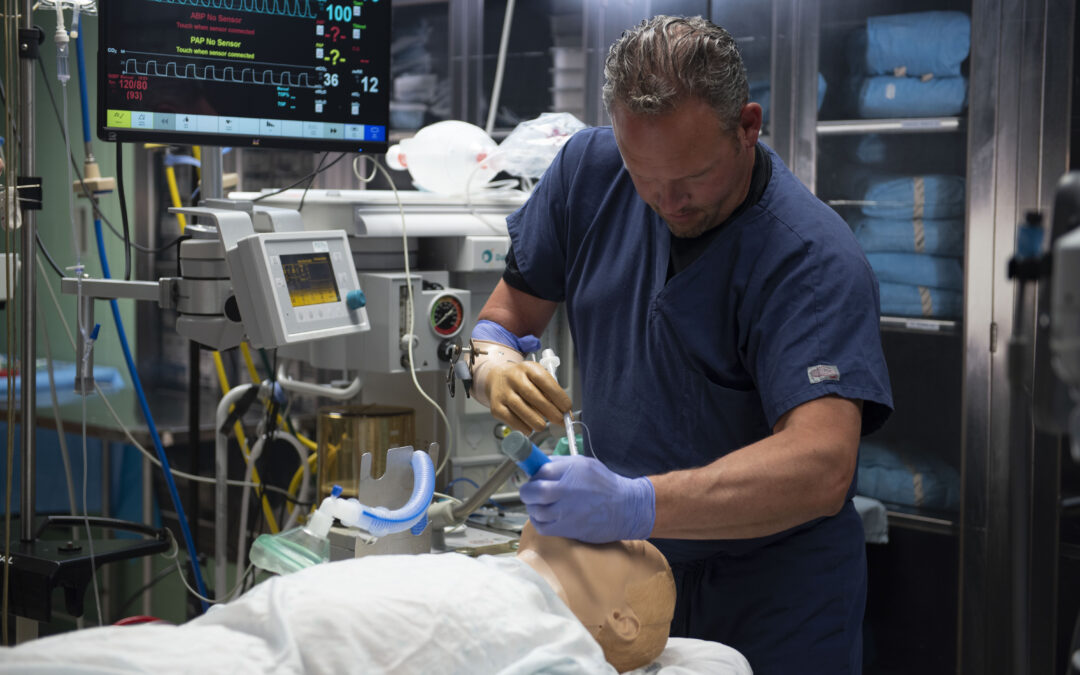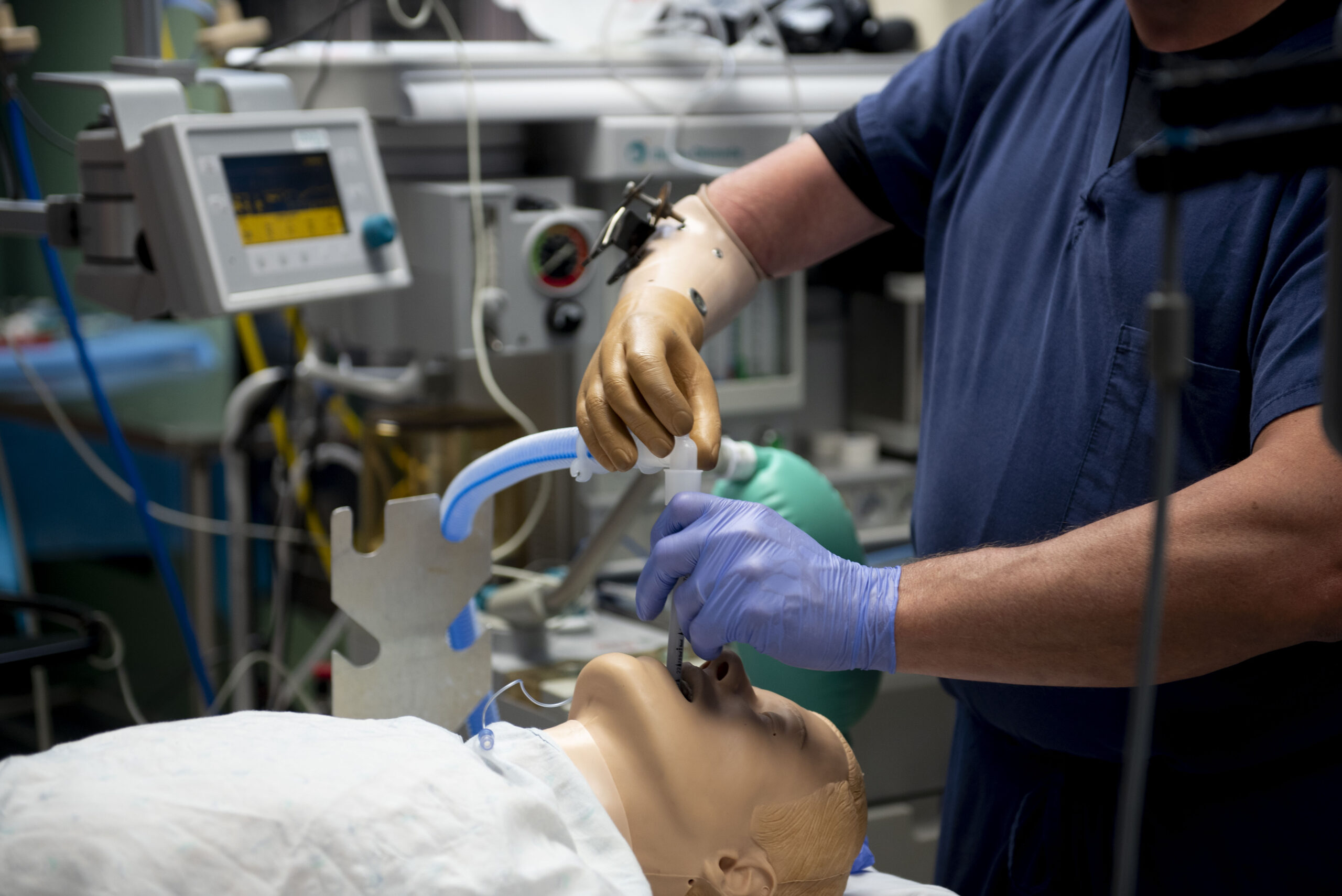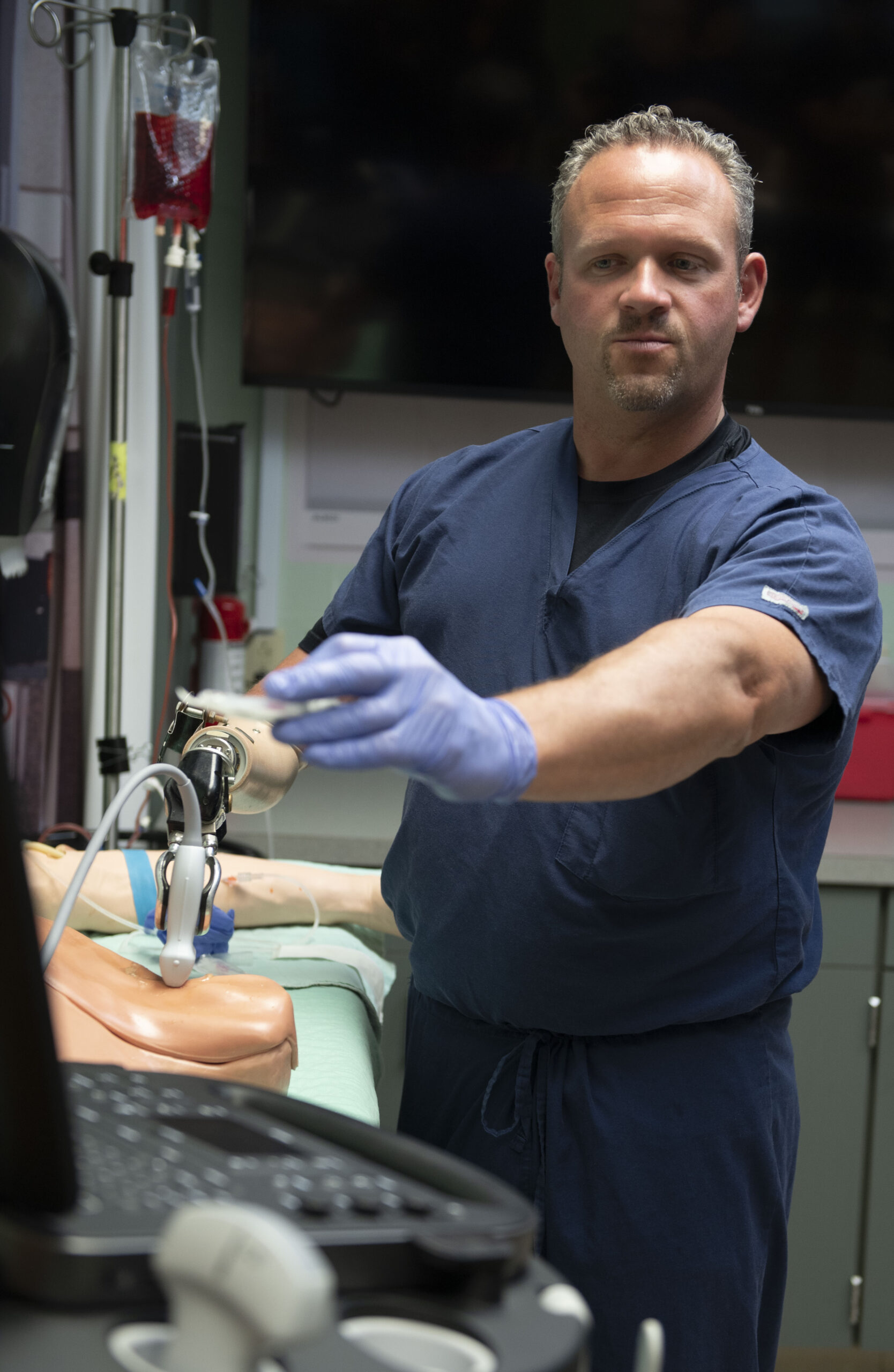Every day at WISER, we see the impact simulation-based healthcare training has on learning and skill acquisition. From nursing students to practicing professionals, simulation gives participants a safe learning environment that acts as a facsimile of clinical practice. Brett Fadgen, CRNA and instructor of our Nurse Anesthesia Regional Anesthesia Training (NARAT) course, not only sees how simulation supports procedural mastery, but how simulation can be used to promote inclusivity and combat bias.
While illustrating how he uses his prosthetics to perform a variety of clinical procedures, Fadgen said, “I think simulation provides an opportunity for people to learn, themselves, what they’re capable of and ways they can modify it in a safe, unbiased environment. It allows opportunities for growth.” He recounted his time at WISER and how the use of simulation allowed him to explore non-standard approaches to reasonably accommodate the use of his prosthetics. When sharing his experiences placing IV catheters, Fadgen said, “My technique is a little bit different, but it’s just as proficient and efficient as anyone with two hands. In some cases, I’ve been in a situation where someone with two hands wasn’t able to do it, but I was.” As an instructor for NARAT, Fadgen helps educate anesthesia professionals on best practices for sterile spinal and epidural placement through experiential learning scenarios.
“In terms of WISER,” Fadgen adds, “if it wasn’t for the use of simulation, I would not have been successful where I am today.” Simulation-based education is a vital tool that advances the knowledge and skills of current and future healthcare providers. At WISER, we collaborate with a variety of nursing and medical professionals to develop courses that improve the quality and delivery of healthcare across the health system. If you’re a healthcare educator wanting to incorporate simulation-based education in your curriculum, let us know how we can help at wiserhelp@upmc.edu.



